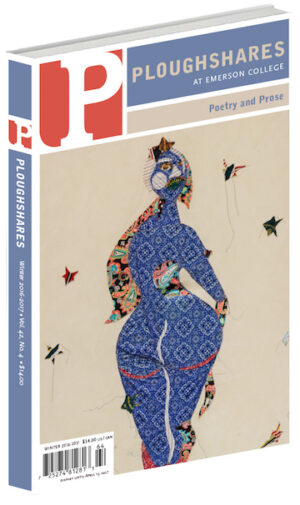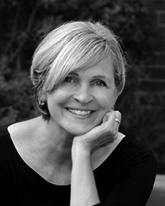Confession (Emerging Writer’s Contest Winner: POETRY)
In poetry, our winner is Leila Chatti for her poem “Confession.”
The poetry judge, Marianne Boruch, writes of “Confession,” “It’s the first I’ve heard of anyone having an honest-to-god point-of-view about Mary whom many of us grew up numbly staring at on a holy card, buying her pious gratitude whole-cloth, and mouthing each repeated prayer to her per rosary bead during Lent, as required. My point is, this poet has managed to both honor and upset convention in a most kickass-lively way. The sheer nerve and wit of what’s said—the whole piece feels wonderfully spoken, one hears its complex colloquial music, or as Auden says about poetry, one overhears—takes us immediately into a wily, sobering interiority, deepened by that parenthetical entreaty to Mary, which seems to burst from a physical empathy. There’s the well-wrought exterior frame too, one long sentence threaded down through the lines to control silence and sound in the poem. It’s memorable. Which is a feat.”
Leila Chatti is a Tunisian American poet. The recipient of a fellowship from the Fine Arts Work Center, a scholarship from the Tin House Writers’ Workshop, and prizes from Narrative magazine’s 30 Below Contest, the Gregory O’Donoghue International Poetry Prize, and the Academy of American Poets, her poems appear in Best New Poets, Narrative, Boston Review, The Missouri Review, North American Review, TriQuarterly, Gulf Coast, and elsewhere. She is originally from East Lansing, MI, and received her MFA in poetry from North Carolina State University.
“Religion has always been a part of my life, though my relationship with my faith has shifted and complicated over time,” Chatti says. “I was raised Muslim by my father, but my mother’s family is deeply Catholic. What most interested me about Catholicism, even as a young child, was Mary. Mary, of course, also appears in the Qur’an; she was chosen by God ‘above all other women.’ Mary, I understood, was the ideal woman. When I became sick in my early twenties with what was thought to be a form of uterine cancer, I turned, as many ill people do, to my faith for answers; I felt at once desperate for God’s help and betrayed by his silence. I formed then a deep sense of kinship with Mary, who had been young and female and also had little say in what happened to her body, but this developed alongside feelings of envy and shame. If the ideal woman was deemed so because of her miraculous pregnancy, what did that make me, who would likely be barren? These complex feelings led to this poem.”
“Oh, I wish I had died before this and was in oblivion, forgotten.”
—Mary giving birth, The Holy Qur’an
Truth be told, I like Mary a little better
when I imagine her like this, crouched
and cursing, a boy-God pushing on
her cervix (I like remembering
she had a cervix, her body ordinary
and so like mine), girl-sweat lacing
rivulets like veins in the sand,
her small hands on her knees
not doves but hands, gripping,
a palm pressed to her spine, fronds
whispering like voyeurs overhead—
(oh Mary, like a God, I too take pleasure
in knowing you were not all
holy, that ache could undo you
like a knot)—and, suffering,
I admire this girl who cared
for a moment not about God
or His plans but her own
distinct life, this fiercer Mary who’d disappear
if it saved her, who’d howl to Hell
with salvation if it meant this pain,
the blessed adolescent who squatted
indignant in a desert, bearing His child
like a secret she never wanted to hear.


